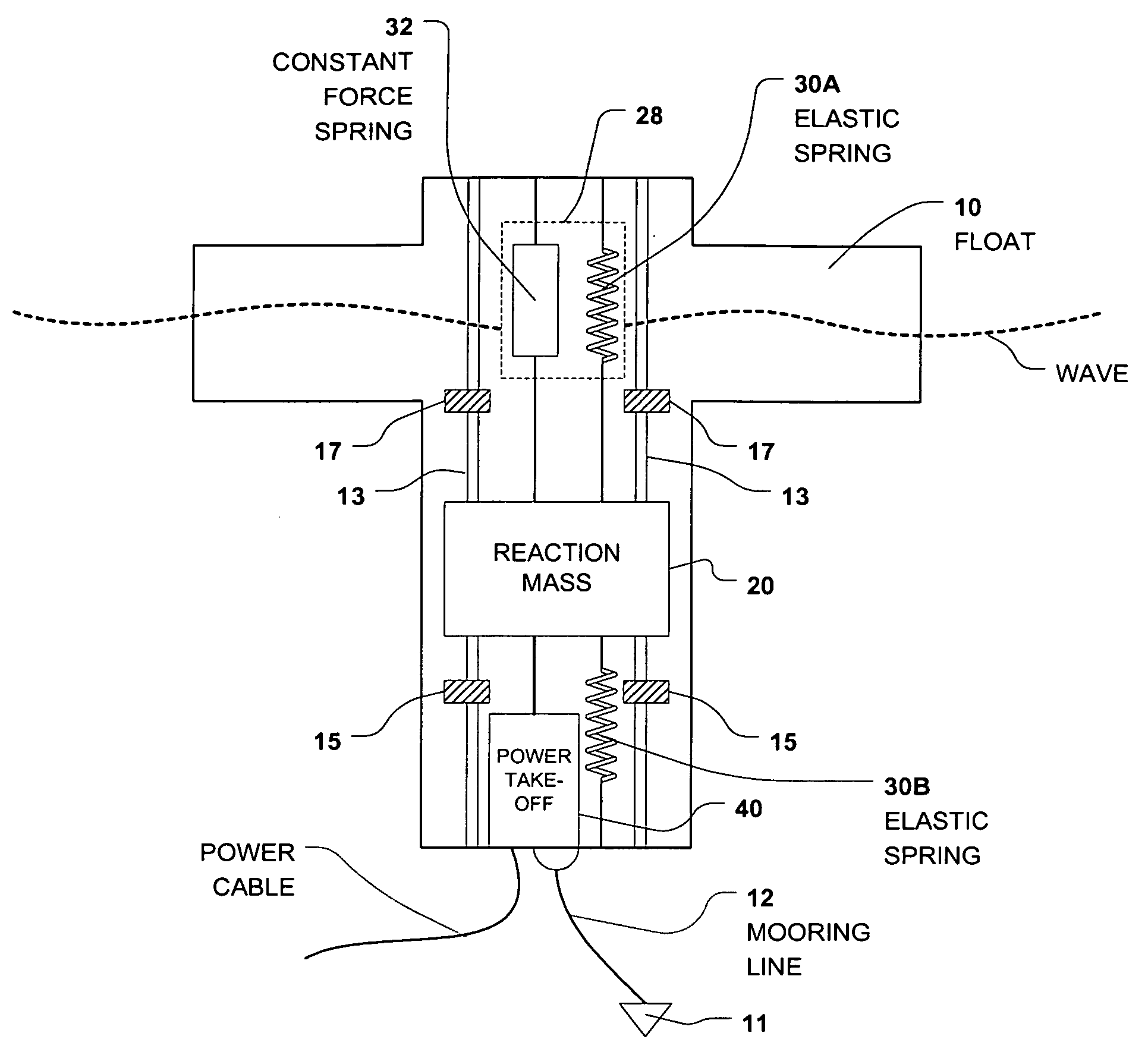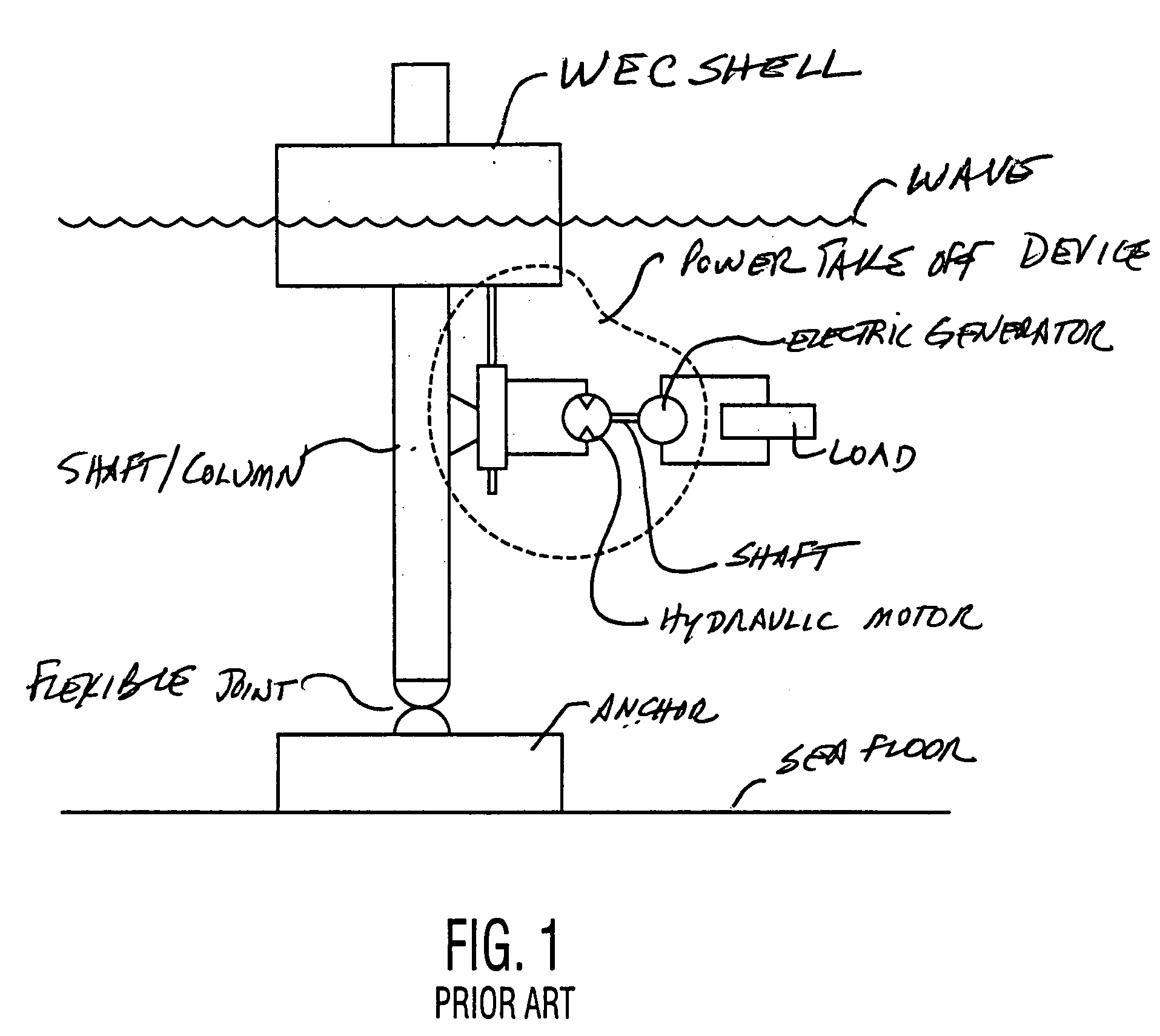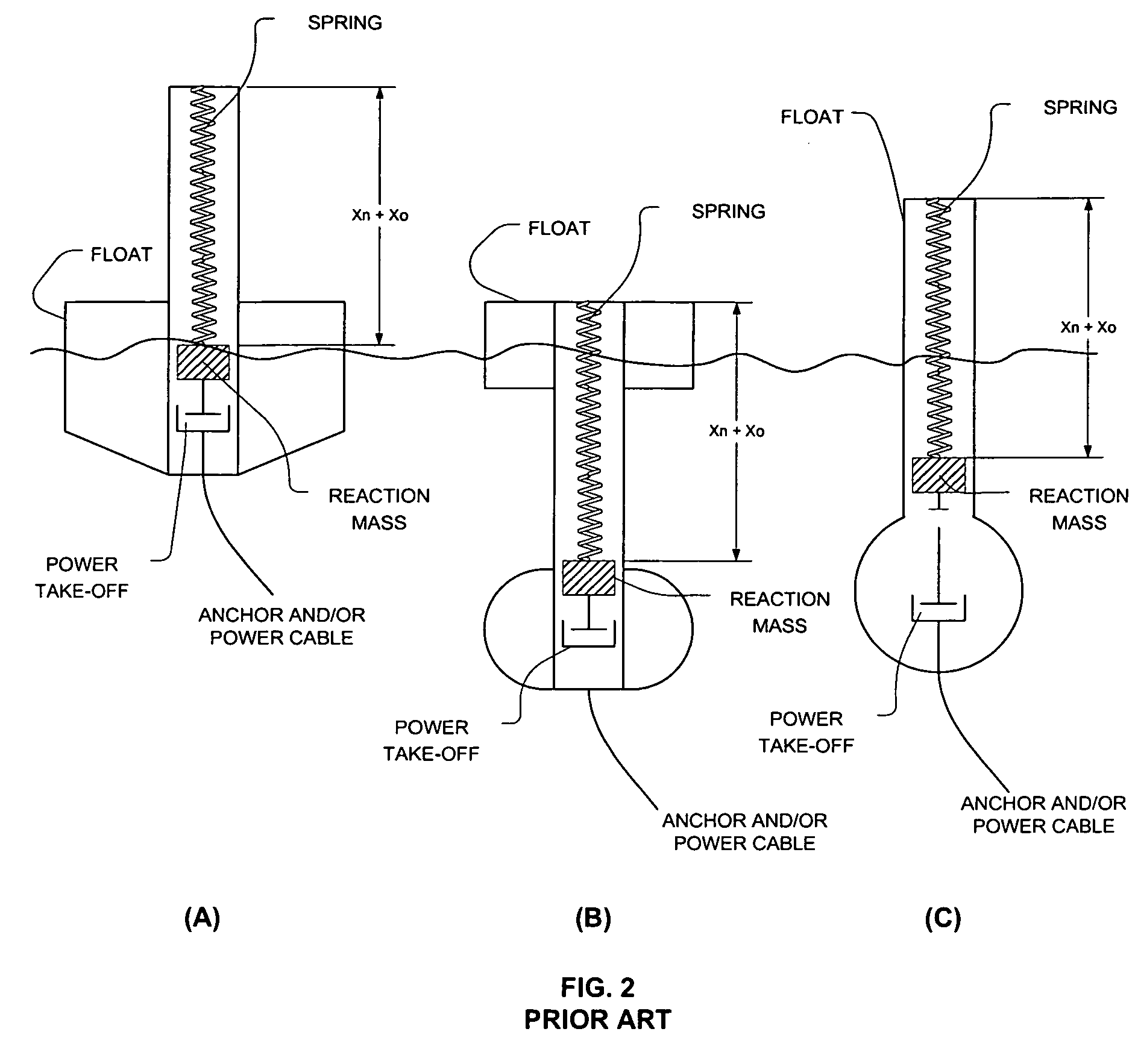Wave energy converter with internal mass on spring oscillator
a technology of oscillator and internal mass, which is applied in the direction of mechanical equipment, machines/engines, electric generator control, etc., can solve the problems of complex and expensive bearings between the float and the spar, corrosion and contamination of the mechanical linkage between the float and the internal mounted pto, and the extended “static” length of the elastic spring, so as to reduce the ability of the elastic spring and control the extended “static” length
- Summary
- Abstract
- Description
- Claims
- Application Information
AI Technical Summary
Benefits of technology
Problems solved by technology
Method used
Image
Examples
Embodiment Construction
[0032]As discussed above with reference to FIGS. 1 and 2 and as noted in references (1) and (2), cited above, it has been suggested to overcome problems with existing WECs in which the spar, float and PTO device are exposed to the water by constructing a WEC with a “shell” (float) that is acted upon by the waves and using a “reaction” mass that is totally contained within the float with a spring and power take-off device that couple the reaction mass to the float. In this type of system, the enclosed mass (m) is suspended from, or supported by, a spring that is connected to the float and whose force constant (k) is tuned to give the desired natural period (Tn) of the WEC. A problem with this approach (i.e., selecting the spring force characteristic to yield a desired natural period) is that the required length of the spring is so long (large) that it is not practical to construct it or house it within the float. The extension length of the spring in still water (x0) can be determine...
PUM
 Login to View More
Login to View More Abstract
Description
Claims
Application Information
 Login to View More
Login to View More - R&D
- Intellectual Property
- Life Sciences
- Materials
- Tech Scout
- Unparalleled Data Quality
- Higher Quality Content
- 60% Fewer Hallucinations
Browse by: Latest US Patents, China's latest patents, Technical Efficacy Thesaurus, Application Domain, Technology Topic, Popular Technical Reports.
© 2025 PatSnap. All rights reserved.Legal|Privacy policy|Modern Slavery Act Transparency Statement|Sitemap|About US| Contact US: help@patsnap.com



